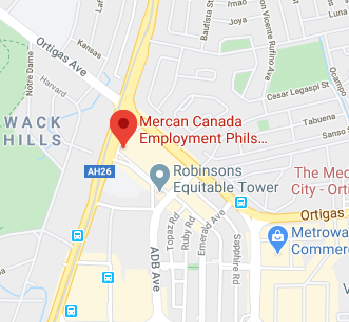Federal Economic Mobility Pathways Pilot (Federal EMPP): Determining admissibility
On this page
- Determining admissibility
- Medical examination
- Criminality
- Financial reasons (section A39)
- Inadmissibility for misrepresentation (section A40)
- Procedural fairness
Determining admissibility
Like any other permanent residence applicant, Federal Economic Mobility Pathways Pilot (Federal EMPP) candidates must not be inadmissible to Canada. Once it has been determined that an applicant is eligible for Federal EMPP, the principal applicant and their family members, whether accompanying or not, must complete medical examinations and pass criminal and security checks.
Measures to reduce challenges faced by refugees and displaced people have been put in place for applications submitted under the Federal EMPP. When assessing admissibility, the IRCC officer must take into consideration the measures below which apply to Federal EMPP candidates.
Medical examination
Federal EMPP candidates who are applying for a permanent resident visa as well as their family members, whether accompanying or not, must submit to a medical examination for the purpose of paragraph 16(2)(b) of the Immigration and Refugee Protection Act (IRPA), unless they fall under 1 of 2 medical exemptions.
Note: Unlike refugees under the Resettlement Program, applicants under the Federal EMPP are not exempt from the excessive demand requirement.
Costs related to the medical examination of Federal EMPP applicants who have met the eligibility requirements for the Federal EMPP public policy are covered through the Interim Federal Health Program (IFHP).
Criminality
The IRCC officer will assess criminality according to the procedures used to assess refugees under the Resettlement Program.
Financial reasons (section A39)
The determining factor under section A39 is whether the principal applicant will be in a position to support themselves, and any dependents, in Canada without recourse to social assistance. In making a determination with respect to an applicant’s financial admissibility, officers must consider the totality of the information on file and all submissions made on a given case as well as take into consideration the special measures implemented in the Federal EMPP. For example, Federal EMPP candidates are eligible to apply for the Immigration Loan Program (ILP) and this should not negatively impact the overall assessment. These special measures have been implemented to support the successful integration of the applicant and family members once they immigrate to Canada.
The officer may consider, among others, the following:
- likelihood of access to funds
- Does the applicant have a permanent job offer?
- Is the pay they will receive sufficient to support their entire family?
- What is the potential to obtain employment?
- additional support from NGOs, employer, family, friends
- Has the applicant made living arrangements for a place to stay?
- Are they staying with relatives?
- current financial situation
- Do they have funds available to them?
- Will they immediately start working upon arrival?
- Have they received a grant or a loan to support them in accessing the Federal EMPP program?
Candidates under the No Job Offer stream must demonstrate proof of settlement funds unencumbered by debt. These candidates are not eligible to use loans as a proof of settlement funds. However, candidates under the Job Offer stream do not need to demonstrate any proof of settlement funds.
To help economically establish in Canada, all Federal EMPP applicants have access to financial resources such as grants and/or loans from designated institutions after arriving to Canada.
The IRCC officer must be satisfied concerning the No Job Offer Federal EMPP candidate’s ability to become economically established in Canada. Candidates under the No Job Offer stream are not eligible to use loans as a proof of settlement funds.
Inadmissibility for misrepresentation (section A40)
The application of section A40 with respect to Federal EMPP candidates differs from applicants who come through the Resettlement Program.
The exemptions outlined in section 22 of the Immigration and Refugee Protection Regulations (IRPR) do not apply to Federal EMPP applicants.
Procedural fairness
To follow procedural fairness, officers must make applicants aware of any concerns about their admissibility and must provide them with an opportunity to address those concerns. All extrinsic information must be disclosed to the applicant if it will be considered negatively by the IRCC officer. The applicant should be given an opportunity to respond to any such information. For more information about procedural fairness, refer to OP1 – Procedures (PDF, 621 KB).


